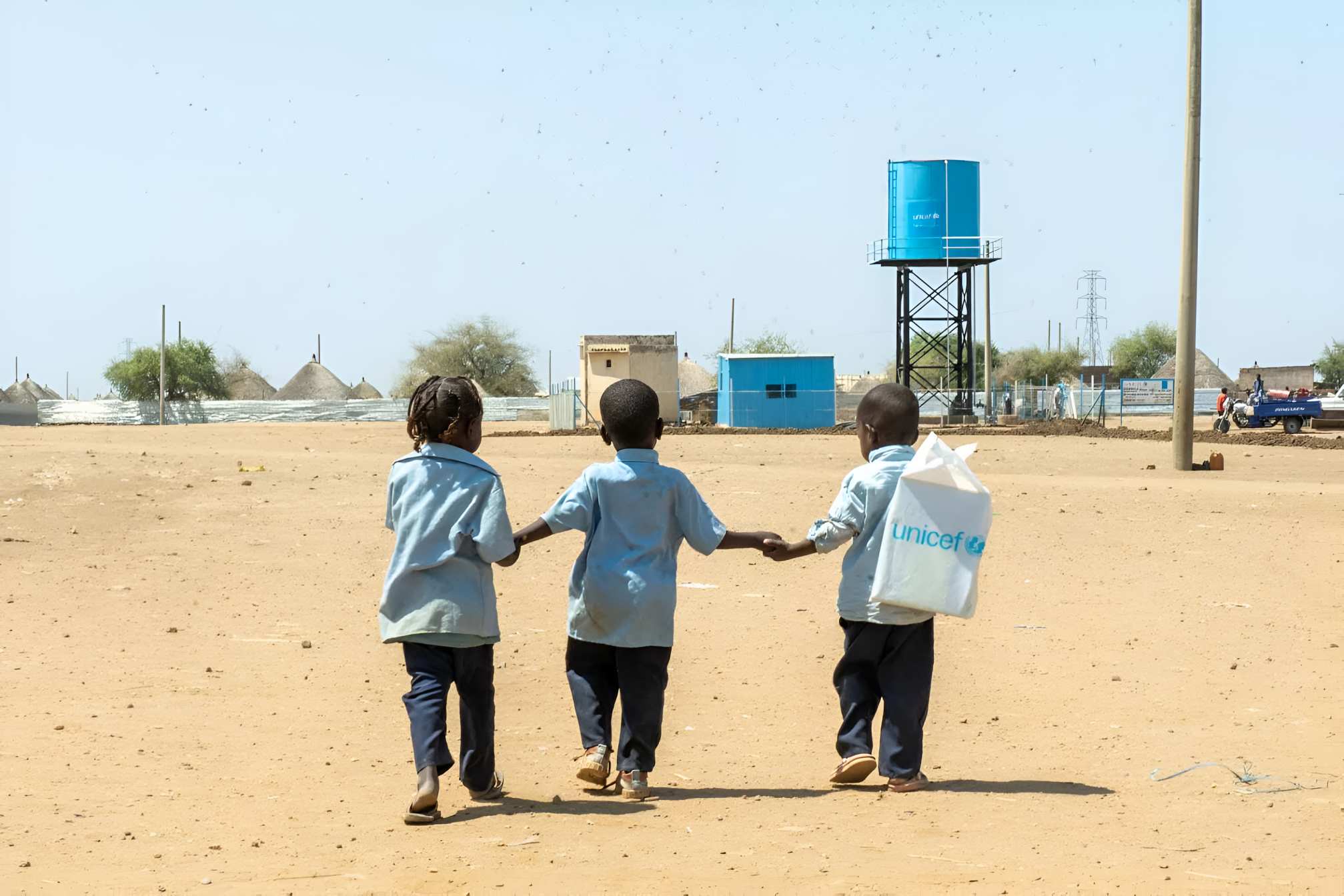Children in Darfur are facing hunger, disease, and fear, as fighting blocks escape routes and shuts down access to basic needs.
Many are trapped, unable to leave, while others have fled only to face new dangers in overcrowded shelters under open skies.
"The escalation of fighting since April 11 has reportedly killed hundreds, and driven a mass exodus of civilians from Al Fasher, and Abu Shouk, and Zamzam camps," said Sheldon Yett, Representative of the United Nations Children’s Fund to Sudan.
Thousands of families as reported by United Nations Children's Fund (UNICEF) have arrived in El-Fasher, seeking safety in incomplete buildings, schools, or under trees.
About 150,000 people are now packed into the town, living without clean water, food, or healthcare.
In Tawila, 180,000 others have joined those already displaced, pushing the total past 300,000. Services in these areas are overwhelmed and struggling to respond.
Behind the numbers are lives in crisis. "We are incredibly concerned about the situation for the unknown number of civilians who remain trapped in Zamzam, either without the means to leave or forcibly prevented from doing so by armed groups," said Yett.
In places where civilians have managed to escape, conditions remain harsh. Roads are dangerous. Humanitarian workers cannot move freely.
"In El-Fasher, continuous fighting has severely restricted movement and disrupted humanitarian operations. Hospitals are barely functioning, medical supplies are expected to run out within weeks, and there are growing shortages of water and fuel for generators," Yett added.
Children are not only hungry and sick, but also losing access to life-saving services.
"Outbreaks of preventable diseases are increasing. In Tawila, more than 800 suspected measles cases have been reported, while critical nutrition services have been suspended following attacks on facilities in Zamzam," said Yett.
Despite the insecurity, the United Nations Children’s Fund is still working to help.
In April, five trucks carrying essential supplies reached Tawila, Zaleingei, and Jebel Marra, helping almost 250,000 displaced people. But it is not enough.
"The scale of need is far greater – and access remains dangerously constrained," Yett said.
"In Tawila, for example, while United Nations Children’s Fund-supported partners are on the ground, services cannot keep up with the overwhelming demand, and there is an urgent need to expand mobile outreach for health and nutrition."
The warning is clear. Time is running out for many children in Darfur.
"Every day, without assistance and protection endangers more lives. Children must be protected – wherever they are. Humanitarian aid must reach them without delay, obstruction, or any other impediment," said Yett.
"Children are running out of food, out of medicine, and out of time."
The United Nations Children’s Fund is urging immediate steps to ensure access to those in need.
"United Nations Children’s Fund urgently calls on the government and all parties to the conflict to facilitate rapid, safe, and unimpeded humanitarian access, across conflict lines - and ensure secured humanitarian corridors to facilitate aid delivery and population movement," said Yett.
International humanitarian and human rights law must be respected. Civilians and civilian objects must be protected. And above all else, the fighting must stop. This is the best way to protect children and restore hope.”
